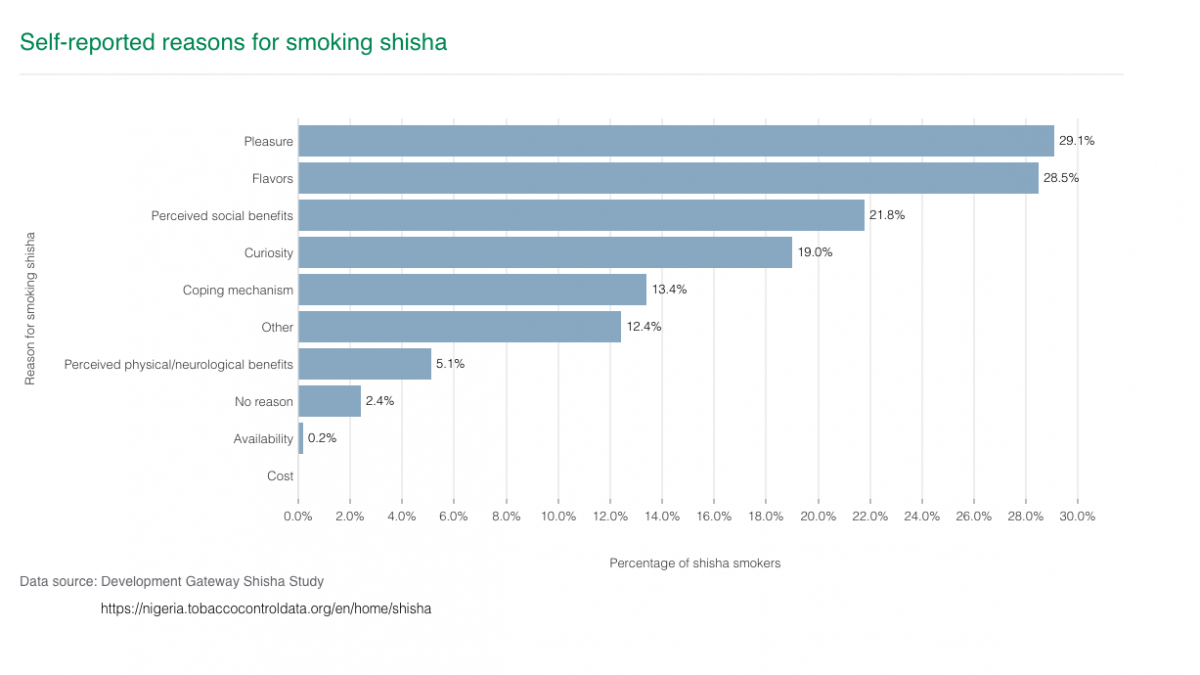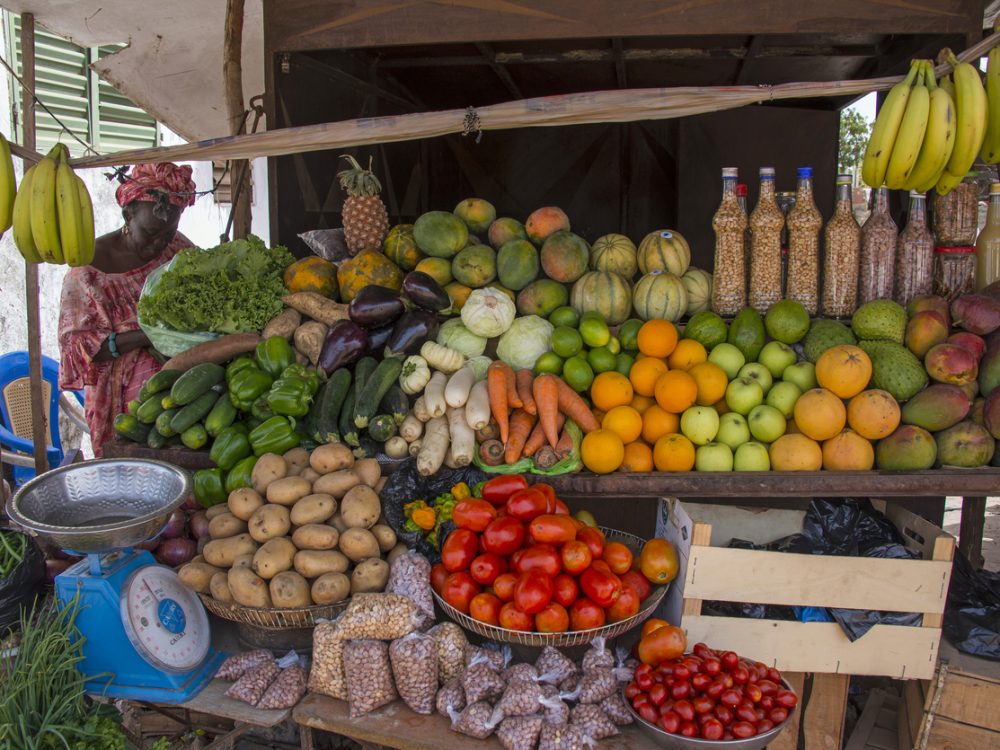
New Research Reveals Reasons for Shisha Smoking in Nigeria
Today, we’re excited to announce our Tobacco Control Data Initiative (TCDI) published groundbreaking research shedding light on reasons for shisha smoking across Nigeria. The research paper, “Reasons for shisha smoking: findings from a mixed methods study among adult shisha smokers in Nigeria,” was published by PLOS Global Public Health and provides vital context-specific evidence to inform the national response to increased shisha smoking. This study, the first of its kind to be conducted in Nigeria, used a mixed methods approach and covered all geographical regions of Nigeria. It was produced in partnership with R-DATS consulting and funded by the Bill and Melinda Gates Foundation.
Key Findings
The research, led by Dr. Noreen Dadirai Mdege, comprises in-depth interviews with 78 current shisha users in 13 states, along with a quantitative survey involving 611 current shisha users across 12 states, spanning Nigeria’s six geopolitical zones.
One of the most common, self-reported reasons for smoking shisha was shisha flavors. Shisha came in a variety of flavors that made people want to try or continue smoking it, and also gave both smokers and non-smokers the impression that shisha is safe, or safer than cigarettes. In addition, shisha smoking was also driven by curiosity about other product attributes such as the smoke; beliefs that it was helpful for coping with challenging life situations such as stress, sadness or joblessness; limited knowledge on the negative health effects; the availability of and ability to smoke shisha in many places, including places where cigarette smoking is prohibited; and poor enforcement and compliance monitoring of the existing tobacco control laws. The presence of friends and family members who smoke shisha, coupled with the need to belong during social events, also played a significant role in promoting shisha smoking.
On the other hand, negative societal views towards shisha smoking and the high costs of shisha discouraged people from smoking it. Additionally, the research indicates that quitting shisha smoking without support is a challenging endeavor.

Implications for public health
This study makes a significant contribution to evidence for decision-making in regards to public health. Restrictions on flavors, strengthening compliance monitoring and enforcement of the tobacco control laws in relation to shisha (e.g., smoke-free environments in indoor and outdoor public places; having health warnings in English on shisha products; and tax measures) have the potential to minimize initiation and use, and to protect the health and wellbeing of Nigeria’s general public.
Dr. Mdege states, “We conducted this study as a response to an expressed need from the tobacco control community in Nigeria for data to inform policy-decisions on how to tackle the alarming surge in shisha smoking. We, therefore, hope that this research and the underlying data will contribute to strengthening tobacco control efforts in Nigeria as well as in other similar contexts.”
The full research paper is available here at PLOS Global Public Health. Access our tobacco control data for Nigeria here.
Share
Recent Posts

Development Gateway Collaborates with 50×2030 Initiative on Data Use in Agriculture
Development Gateway announces the launch of the Data Interoperability and Governance program to collaborate with the 50x2030 initiative on data use in agriculture in Senegal for evidence-based policymaking.

Strengthening Online Safety Through Prevention in the Philippines
Tech-Facilitated Gender-Based Violence continues to evolve alongside emerging technologies. This blog explores how preventative measures, such as the Safety By Design approach, can be used to create a safer internet.

Preparing Jordan’s Education System for the AI Age
This blog introduces Asas, an early grade education program led by IREX and DG in partnership with Jordan’s Ministry of Education, and explores what AI readiness looks like in early grades and how AI can be integrated safely and sustainably into education systems.